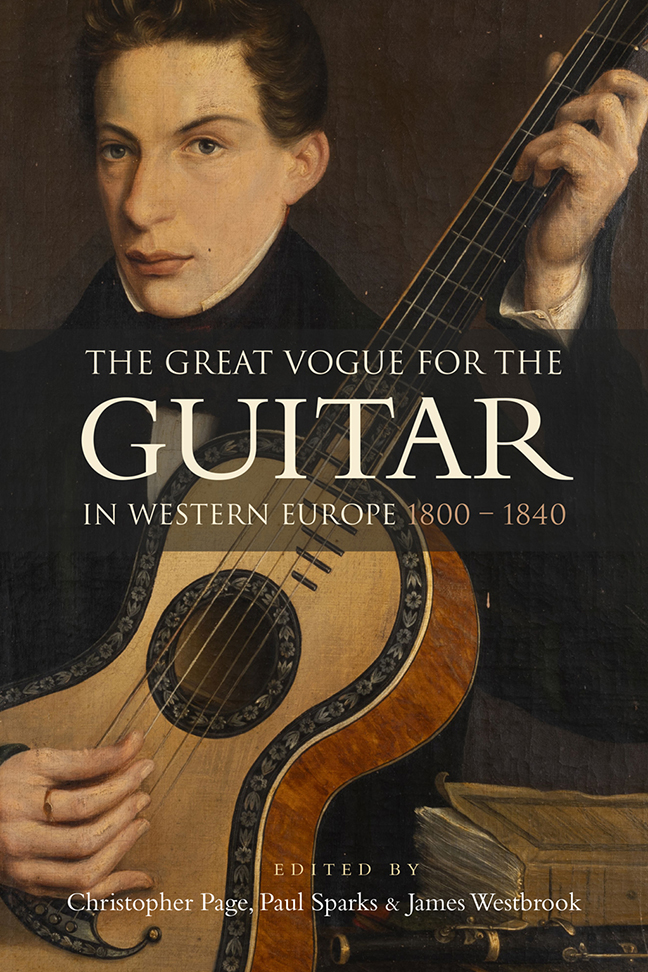Book contents
- Frontmatter
- Dedication
- Contents
- List of Illustrations
- Music examples
- The editors and the contributors
- Foreword
- Acknowledgements
- List of Abbreviations
- Introduction: The Great Vogue for the guitar
- I Contexts
- II The repertoire and its composers
- Appendix: A note on string-making
- Glossary of guitar terms
- Select Bibliography
- Index
1 - Eighteenth-century precedents: The role of Paris
Published online by Cambridge University Press: 10 January 2024
- Frontmatter
- Dedication
- Contents
- List of Illustrations
- Music examples
- The editors and the contributors
- Foreword
- Acknowledgements
- List of Abbreviations
- Introduction: The Great Vogue for the guitar
- I Contexts
- II The repertoire and its composers
- Appendix: A note on string-making
- Glossary of guitar terms
- Select Bibliography
- Index
Summary
The fashion for the guitar has fluctuated in intensity throughout the instrument’s history. Much of the eighteenth century appears to have been a period of retrenchment, when the guitar found few devotees in most parts of Europe, at least among the upper classes. This is true even of Spain, where it was largely confined to popular music until the end of the century, when there was a noticeable increase in the level of activity and musical ambition among guitar players, in Spain as elsewhere. There was one country, however, or more precisely one city, where the guitar was widely played during the second half of the eighteenth century, and that was Paris. The French capital had a bustling guitar scene, from the mid-1700s onwards, revealing an enthusiasm for the instrument that proved inspiring. Paris was then the second largest city in Europe after London, with a secure economic base that enabled the elite to cultivate an interest in music and other arts. With such a large and concentrated market to be served, music publishing was economically profitable, and the trade developed rapidly from the 1750s onwards, as advertisements in the press reveal. The number of Parisian music publishers increased correspondingly: the Almanach musical of 1783 records forty-four of them, and by 1799 this total had risen to some sixty. As we shall see, a considerable number of their publications were for the guitar.
The marked improvement in the guitar's fortunes around the middle of the eighteenth century owed much to the fresh impetus that the instrument gave to a well-established tradition of light songs, in which it was the perfect complement to the voice. The guitar could produce simple accompaniments without excessive study, and it was eminently portable. This renewed enthusiasm is corroborated by the oft quoted entry on the guitar in the seventh volume (1757) of the greatest single work of Enlightenment scholarship, the Encyclopédie of Denis Diderot and Jean Le Rond d’Alembert, where we read that ‘Some devotees have caused the guitar to be reborn and have at the same time reawakened our taste for our vaudevilles, pastorales and brunettes, which have acquired thereby a fresh appeal.’ The guitar in question would have been the five-course instrument, which at that time had the two lowest courses tuned in octaves, tied-on frets and a rose filling the soundhole.
- Type
- Chapter
- Information
- The Great Vogue for the Guitar in Western Europe1800-1840, pp. 13 - 28Publisher: Boydell & BrewerPrint publication year: 2023



